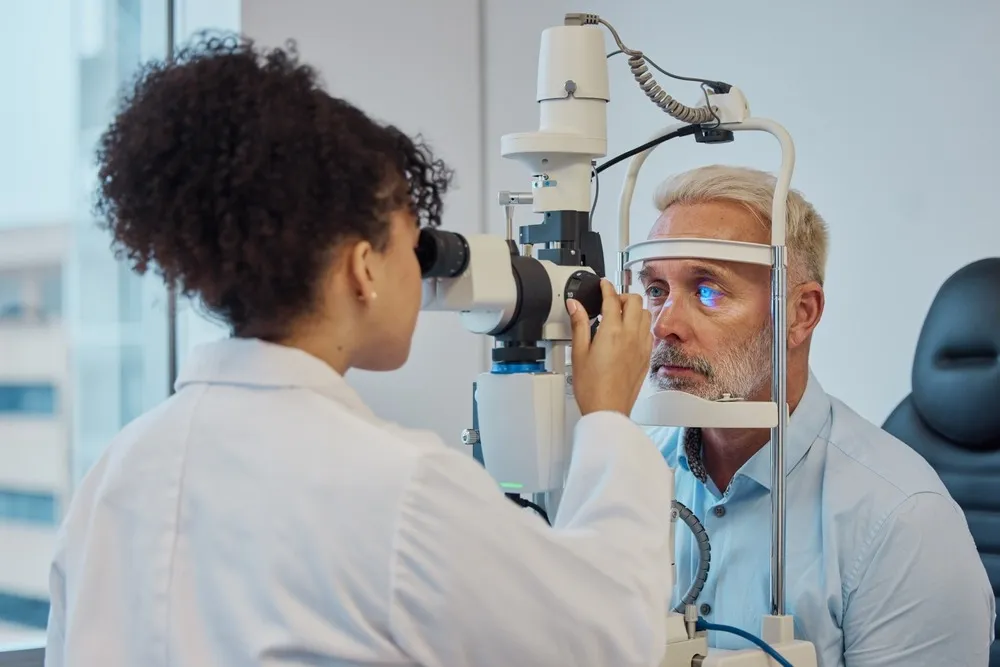Comprehensive eye exams involve a series of tests designed to evaluate your vision and check the overall health of your eyes. During an exam, an eye care professional uses a variety of instruments and techniques to assess your eyesight, eye structure, and responsiveness. Frequent check-ups give you a clear understanding of your eye health and support your vision over time. Here are some benefits of regular eye exams:
Manage Vision Changes
Eyesight can change throughout every stage of life, often happening gradually, so that you may not notice slight shifts in clarity. Reading, working on a computer, or driving may become harder over time without you realizing that your vision has changed. A regular eye exam provides a precise and up-to-date assessment of your current vision needs.
During an exam, an optometrist identifies changes in nearsightedness, farsightedness, or astigmatism. With this information, you receive an accurate prescription for glasses or contact lenses. This supports your vision and helps limit discomfort such as headaches or eye strain that might stem from outdated lenses.
For individuals who already wear corrective lenses, routine exams confirm that your prescription remains effective and address any changes since your last visit. Even minor adjustments to your prescription can sharpen your focus and reduce fatigue. An updated prescription usually makes daily tasks easier and more comfortable.
Detect Diseases Early
Some eye conditions progress without noticeable symptoms, making them difficult to detect without an exam. Diseases like glaucoma, diabetic retinopathy, and macular degeneration can develop slowly. They may not affect your vision until the condition has progressed. A comprehensive eye exam is designed to spot the earliest signs of these and other eye conditions. Eye doctors look for subtle changes in the appearance of your retina, optic nerve, and blood vessels.
Detecting eye diseases in their early stages provides an opportunity for timely management. While there is no cure for certain conditions, treatments may help slow their advancement and maintain your vision. Early diagnosis typically provides more options for managing your eye health. During eye exams, optometrists check your visual field, measure eye pressure, examine the interior of your eye, and review your family and medical history.
Monitor Chronic Conditions
Your eyes can reflect changes resulting from ongoing health conditions, such as diabetes or high blood pressure. High blood sugar may damage the blood vessels in your retina, increasing your risk of visual complications. Hypertension can also affect the delicate vessels in your eyes, creating changes that are often only visible during a professional exam.Sharing exam results with your primary care physician can help manage your overall health.
During an appointment, an eye doctor uses specialized tools to closely observe the blood vessels and nerves inside your eye. Signs of swelling, leaking, or narrowing of vessels often reveal how chronic health issues are affecting your body. For those managing diabetes, eye exams help track retinopathy and related complications. For individuals with high blood pressure or other systemic conditions, monitoring vision may provide early warning signs if health is shifting.
Schedule Eye Exams Today
Regular eye exams give you the insight you need to adapt to vision changes, detect diseases before they progress, and keep an eye on how other health conditions may influence your sight. These visits provide an up-to-date assessment of your vision and serve as a foundation for future eye care decisions. Contact an eye doctor today to schedule a comprehensive exam.

